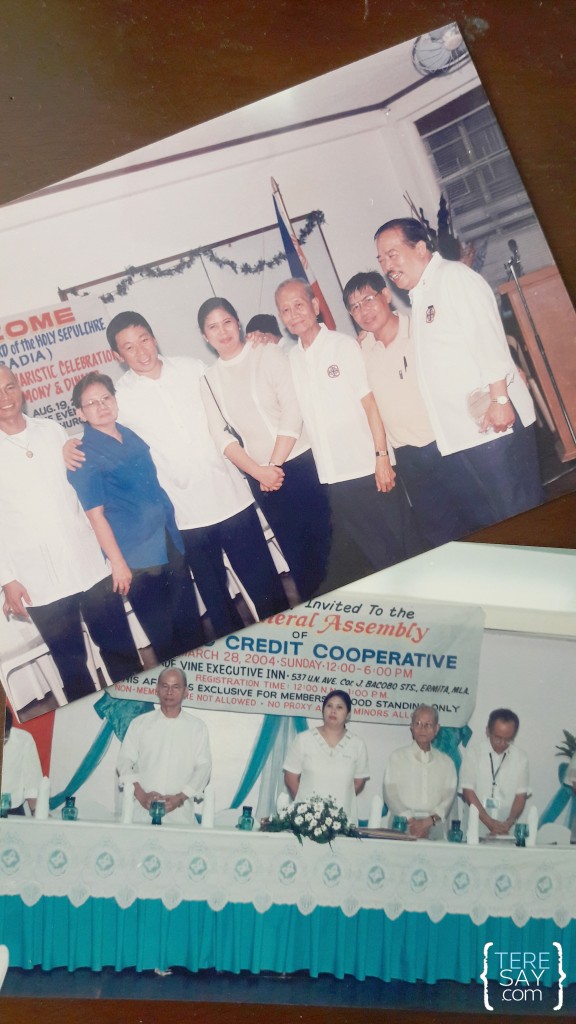Value of Work Ethics as Applied to Self
The years I spent formally employed with a company does not span decades but the amount of memories and lessons I retained more than makes up for the shorter period. From an entry-level job as an online teller in a prestigious commercial bank to the responsibility-laden position of being a Chairman of the Board of Directors in a community credit cooperative, I believe it was the sound work ethics that I held on to which pulled me through. Sound work ethics forms the core of order in the workplace and there is great value in applying it first on ourselves before anyone else.

Entry-Level Jobs
Entry-level jobs are jobs usually available to fresh graduates requiring minimum skills and knowledge as determined by each company based on the nature of business they are in. These are jobs that could provide the experience needed to include in our resumes when we start thinking about higher job positions. Although an entry-level job often falls at the bottom when it comes to pay rate, this is no reason not to take it seriously. Our performance in entry-level jobs and other rank-and-file positions can make or destroy careers.
There are five basic requirements to do good at this level. First is the willingness to learn. Second is the humility to follow orders of superiors. Third is the wisdom to determine which orders have to be followed. Fourth is acceptance that hard work comes with the package. Last but not the least is the capability to take responsibility for every decision and action we take in performing our jobs.

The Mid-Level Jobs
Entry-level employees need to be like sponges that absorb learning fast. They also need to accept the fact that superiors will be giving orders so adopting an attitude against authority will simply not work. However, it is very important to know when to draw the line in following orders that go against company policies. Good old hard work still holds the key to success regardless of some people’s claims that being smart is the way to go. In spite being at the lowest rank when it comes to the degree of responsibility as well, employees must understand the value of their task in relation to the overall performance of a company. Many big companies are facing the unpleasant task of addressing “small issues” that could have been resolved or even prevented at the front-line.
Somewhere in between the entry-level job and a higher management position lies an assortment of jobs that we will choose along the way. Some are in the belief that it would be best to take related jobs as they climb the corporate ladder although more and more people are choosing to be open-minded when it comes to accepting positions in different industries. Most of the time, the final choice would largely depend on the available opportunities rather than the preferred job. In the real world, we rarely get the perfect job that we have always envisioned in our minds but most of us do have to work, whether we like it or not. At this level, employees would need to be innovative, adaptable, focused, willing to pursue higher learning, while still being hardworking as ever.

Higher Management Positions
Higher management positions are the most desired job positions because of the usually more attractive pay, better benefits, more authority, wider opportunities, and higher level of respect related to the position (not necessarily the person). It is considered natural to dream of getting the highest position in a company because of these perks. Make no mistake however in thinking that work becomes lighter during this stage. It may be so in the physical sense but not in the degree of responsibility.
People who reach this level typically have sound work ethics at work. Holders of these positions must be responsible, accountable, knowledgeable through education and experience, hardworking and have the ability to listen. These people make important decisions that affect hundreds, if not thousands of workers in a company, so anything less is dangerous.
My Say
My entry-level job as an online teller when online banking was just being introduced by the Bank of the Philippine Islands taught me the value of excellence. Mediocrity is not acceptable as only the best efforts will do. When my husband and I left the bank, we dove straight to entrepreneurship where we had to perform every job position required to keep the business going. It was education through experience at its very best and we embraced the value of continuous learning to the fullest. My stint as the very first woman chairperson of our community cooperative in Manila is by far the most challenging especially with a Board that was composed mostly of accomplished men in their senior years who were highly respected in the community. My main thrust was accountability, with fear of making wrong decisions that are highly impacting always a matter to consider.
Today, I am at a very interesting crossroads in my career. I have an entry-level job and at my age, that speaks much about my capacity to adapt to the situation. I am also a part of the Village Board- a body that holds the highest authority in managing our community and a job which requires humility and the ability to listen. I hold two jobs that are in extremes. One says I “follow”, the other one says “I lead”. Sometimes, I feel I have two personalities but eventually got used to shifting from one role to the other without skipping a beat.
All these form my personal work ethics which I try to bring to my writing as well. I know you can guess by this time that writing is another job I hold. It is a set of work values I believe in and strive to practice. While one of my jobs is dictated by necessity and the other by conscience, my writing job is a matter of personal joy. But whatever job I am doing at any given time, it is always with the belief that hard work is not a thing of the past. It remains relevant today in spite of the claims of many that there is a “smarter” and shorter route to success. Everyone will get the chance to choose and form their own set of work values and reckoning will come at the end.












